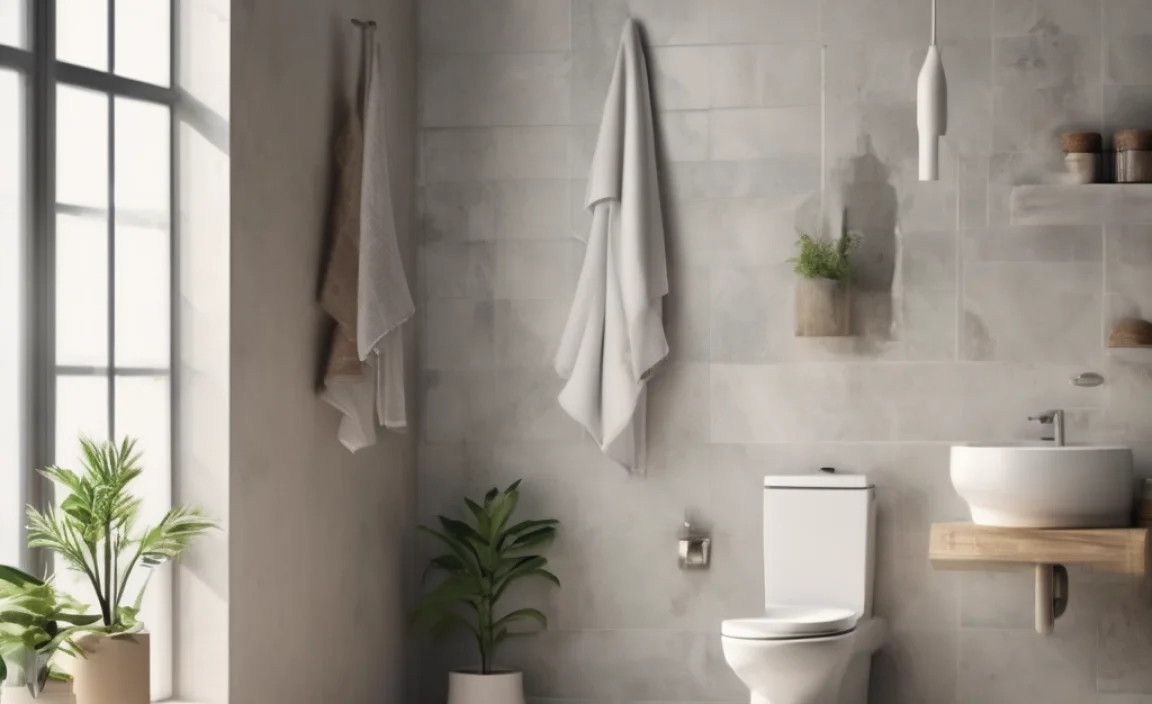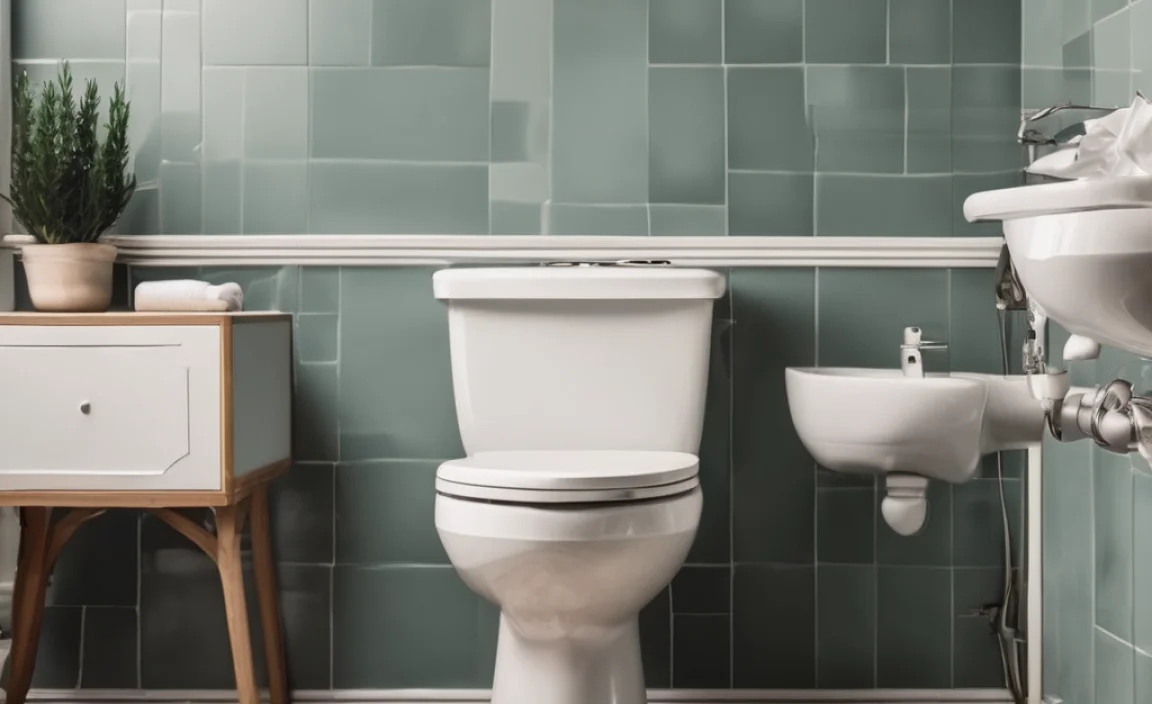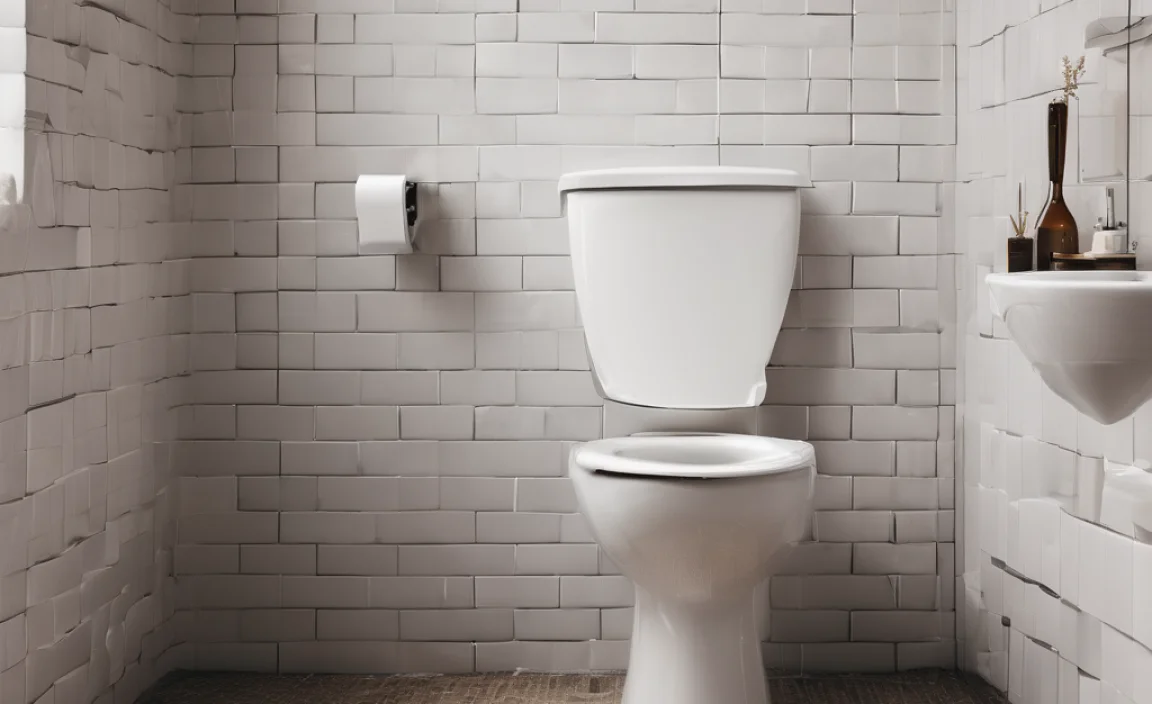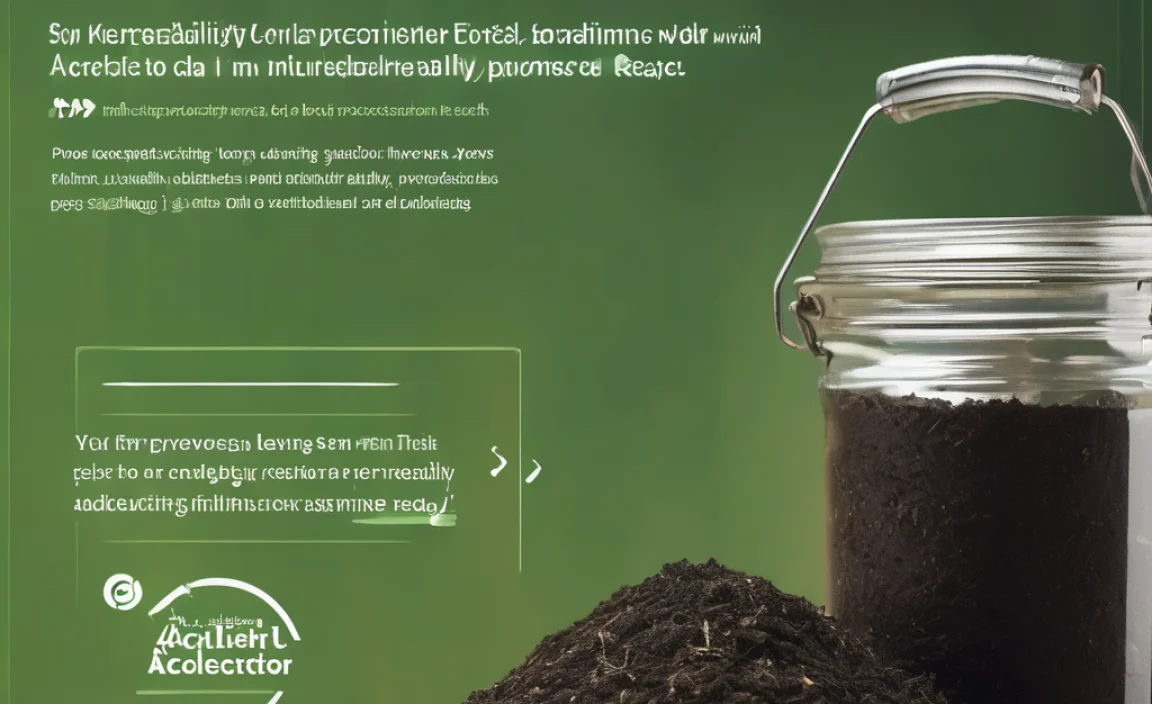Quick Summary: Cleaning yourself after using the toilet in Islam, known as Istinja, involves washing the private parts with water until they are clean. You can use your left hand and plenty of water, ensuring no impurity remains. If water isn’t available, using permissible materials like clean stones or toilet paper is an alternative. Proper hygiene is essential for purity before prayer.
Ever feel unsure about the proper way to cleanse yourself after using the toilet according to Islamic practices? Don’t worry, you’re not alone! Many people find this topic a bit confusing, but it’s a really important part of staying clean and pure. We’re going to break down the simple steps to follow. You’ll learn exactly what to do, so you can feel confident and comfortable. Let’s get started and make this easy!
Understanding Istinja: The Islamic Way to Cleanse

In Islam, cleanliness is super important, especially before prayer. Istinja is the process of cleaning the private parts after using the toilet. It’s all about making sure you’re physically pure, which is a requirement before you can pray. This practice keeps you healthy and follows the teachings of Islam. It might seem a bit different from what you’re used to, but it’s really straightforward once you get the hang of it.
Why Is Istinja Important?
Istinja is more than just good hygiene; it’s a religious obligation. Here’s why it matters:
- Purity for Prayer: To perform the five daily prayers, you need to be in a state of physical purity. Istinja ensures that.
- Health and Hygiene: Cleaning yourself properly prevents infections and keeps you healthy.
- Following Islamic Teachings: The Prophet Muhammad (peace be upon him) emphasized cleanliness as half of faith.
Step-by-Step Guide to Performing Istinja with Water

Using water is the most common and preferred method for Istinja. Here’s how to do it right:
What You’ll Need
- Water (clean and pure)
- A clean water source (like a tap or a jug)
- Your left hand
Step 1: Position Yourself Properly
Find a comfortable position where you can easily reach and clean yourself. This might be sitting or squatting, depending on the toilet you’re using.
Step 2: Use Your Left Hand
Always use your left hand for cleaning. The right hand is generally reserved for eating and other clean tasks.
Step 3: Pour Water and Clean
Pour water over your private parts while using your left hand to clean the area thoroughly. Make sure to remove all traces of impurity.
Step 4: Repeat as Necessary
Keep washing and cleaning until you feel confident that the area is completely clean. There should be no visible traces of impurity, and no smell.
Step 5: Dry Yourself
Once you’re clean, you can dry yourself with a clean cloth, toilet paper, or let the area air dry. Make sure you’re completely dry before getting dressed.
Using Alternatives When Water Isn’t Available

Sometimes, you might not have access to water. In these situations, Islam provides alternatives to maintain cleanliness. These alternatives are called Istijmar.
What You’ll Need
- Clean stones, pebbles, or toilet paper
- At least three pieces
Acceptable Materials for Istijmar
Not every material is suitable for Istijmar. Here’s a list of what you can use:
- Toilet Paper: Widely available and convenient.
- Clean Stones or Pebbles: These should be free from impurities.
- Dry Cloth: A clean, dry cloth can be used if nothing else is available.
Unacceptable Materials for Istijmar
Avoid using these materials as they are not considered appropriate:
- Food: Any type of food is not allowed.
- Bones: Using bones is prohibited.
- Anything Considered Sacred: Items with religious significance should not be used.
- Wet or Dirty Materials: These will not effectively clean you.
Step-by-Step Guide to Performing Istijmar
Here’s how to perform Istijmar when water isn’t available:
- Use at Least Three Pieces: Take at least three pieces of toilet paper or clean stones.
- Wipe Thoroughly: Use each piece to wipe the area until it is clean.
- Ensure Cleanliness: Make sure to use enough pieces to remove all traces of impurity.
- Dispose of Materials Properly: Throw away the used toilet paper or stones in a designated waste bin.
Combining Water and Alternatives
For the best results, you can combine Istijmar with water. Here’s how:
- Use Istijmar First: Start by using toilet paper or stones to remove the majority of the impurity.
- Follow with Water: Then, use water to wash the area thoroughly, as described in the water method.
- Dry Yourself: Finish by drying yourself with a clean cloth or toilet paper.
Important Considerations
Keep these points in mind when performing Istinja:
- Intention (Niyyah): While not obligatory, having the intention to purify yourself for prayer can add to the spiritual benefit.
- Cleanliness is Key: Always ensure that the materials you use are clean and free from impurities.
- Hygiene: Wash your hands thoroughly after performing Istinja.
Common Mistakes to Avoid
Here are some common mistakes people make during Istinja and how to avoid them:
| Mistake | How to Avoid It |
|---|---|
| Using the right hand | Always use the left hand for cleaning. |
| Not using enough water or materials | Ensure you use enough water or toilet paper to completely clean the area. |
| Using impure materials | Only use clean water, toilet paper, stones, or cloth. |
| Not washing hands after | Always wash your hands thoroughly with soap and water after performing Istinja. |
Additional Tips for Maintaining Cleanliness
Here are some extra tips to help you maintain good hygiene:
- Regularly Change Underwear: Changing your underwear daily helps prevent the buildup of bacteria.
- Stay Hydrated: Drinking plenty of water helps maintain good health and hygiene.
- Use a Bidet: If available, a bidet can make cleaning easier and more effective.
Understanding Islamic Etiquette
Islamic teachings also provide guidelines on bathroom etiquette. Following these etiquettes shows respect and mindfulness.
Entering the Bathroom
When entering the bathroom:
- Say a Prayer: It is recommended to say a short prayer before entering, such as “Bismillah, Allahumma inni a’udhu bika min al-khubuthi wal-khaba’ith” (In the name of Allah, O Allah, I seek refuge in You from the male and female evil spirits).
- Enter with the Left Foot: Step into the bathroom with your left foot first.
While in the Bathroom
Observe these practices while inside:
- Avoid Talking: Refrain from talking unless necessary.
- Face Away from the Qibla: Do not face the Qibla (the direction of the Kaaba in Mecca) when relieving yourself.
Leaving the Bathroom
When leaving the bathroom:
- Say a Prayer: It is recommended to say “Ghufraanak” (I seek Your forgiveness).
- Exit with the Right Foot: Step out of the bathroom with your right foot first.
The Importance of Cleanliness in Islam
Cleanliness isn’t just a personal habit in Islam; it’s a fundamental part of the faith. The Quran and the teachings of Prophet Muhammad (peace be upon him) emphasize the importance of staying pure and clean in both body and spirit. This focus on cleanliness reflects a holistic approach to health and well-being, linking physical purity to spiritual readiness.
Quranic Verses on Cleanliness
The Quran highlights the significance of cleanliness in several verses. For example, in Surah Al-Baqarah (2:222), Allah says, “Indeed, Allah loves those who are constantly repentant and loves those who purify themselves.” This verse shows that purification is not just a physical act but also a way to earn Allah’s love.
Hadith on Cleanliness
The Prophet Muhammad (peace be upon him) also emphasized cleanliness in many of his sayings (Hadith). One famous Hadith states, “Cleanliness is half of faith.” This highlights how crucial cleanliness is to a Muslim’s overall faith and practice. Another Hadith encourages Muslims to clean their teeth, emphasizing oral hygiene as part of overall cleanliness.
Impact on Daily Life
The emphasis on cleanliness in Islam affects many aspects of daily life:
- Ablution (Wudu): Muslims perform ablution before prayer, washing their hands, face, arms, head, and feet to purify themselves.
- Bathing (Ghusl): After certain conditions, such as sexual activity or menstruation, Muslims perform a full bath to cleanse themselves.
- Food Preparation: Muslims are encouraged to wash their hands before preparing food and to ensure that their cooking areas are clean.
- Personal Hygiene: Regular bathing, trimming nails, and maintaining clean clothes are all part of Islamic teachings on cleanliness.
By integrating these practices into daily routines, Muslims aim to maintain a high standard of cleanliness, reflecting their commitment to both physical and spiritual purity. You can find more information on Islamic teachings from trusted sources like Islamicity.
Seeking Knowledge and Guidance
If you’re unsure about any aspect of Istinja or Islamic hygiene, don’t hesitate to seek guidance from knowledgeable sources. Religious scholars, imams, and trusted community members can provide valuable insights and clarification. They can help you understand the nuances of these practices and ensure you’re performing them correctly.
Finding Reliable Information
When seeking information, make sure to consult reliable and trustworthy sources. Here are a few tips:
- Consult Religious Scholars: Speak with knowledgeable scholars or imams who can provide accurate guidance based on Islamic teachings.
- Refer to Authentic Islamic Texts: Read the Quran and Hadith with reliable translations and interpretations.
- Use Reputable Websites: Look for websites and online resources that are known for their accuracy and adherence to Islamic principles.
- Engage with Your Community: Participate in discussions and seek advice from trusted members of your local Muslim community.
Overcoming Challenges
Sometimes, following Islamic hygiene practices can be challenging, especially when you’re in unfamiliar environments or lack access to proper facilities. Here are some strategies to overcome these challenges:
- Plan Ahead: When traveling or going to public places, plan ahead by carrying water or toilet paper with you.
- Be Resourceful: If you can’t find water, use the available alternatives like clean stones or toilet paper.
- Adapt to the Situation: Do your best to follow the guidelines within the constraints of your environment.
- Seek Accommodations: If possible, request accommodations that allow you to perform Istinja properly, such as access to a bidet or a private space.
By being prepared and adaptable, you can maintain your commitment to cleanliness and purity, no matter where you are.
FAQ About Cleaning Yourself After Toilet in Islam
Is it mandatory to use water for Istinja?
Using water is the preferred method for Istinja, but if water isn’t available, you can use alternatives like clean stones or toilet paper.
Can I use my right hand for Istinja if my left hand is injured?
Ideally, use your left hand. If it’s genuinely impossible due to injury, you can use your right hand, but this is an exception.
How many times should I wipe with toilet paper if I can’t use water?
Wipe at least three times, or until you feel the area is clean. Ensure no visible traces of impurity remain.
What if I’m not sure if I’m completely clean?
Err on the side of caution. Repeat the cleaning process until you are confident that the area is thoroughly clean.
Are wet wipes an acceptable alternative to water?
Yes, wet wipes can be used as an alternative if they are clean and effectively remove impurities.
Can I perform Istinja in any bathroom?
Yes, you can perform Istinja in any bathroom as long as you have access to clean water or acceptable alternatives.
What should I do if I accidentally touch my private parts with my right hand?
Wash your right hand thoroughly with soap and water to ensure it is clean.
Conclusion
Learning how to clean yourself after using the toilet in Islam is a fundamental step in maintaining purity and following Islamic teachings. Whether you’re using water or alternatives like toilet paper, the key is to ensure thorough cleanliness. Remember to use your left hand, avoid common mistakes, and seek guidance when needed. By following these simple steps, you can confidently maintain your hygiene and fulfill this important aspect of Islamic practice. Keep practicing, and it will become second nature!

